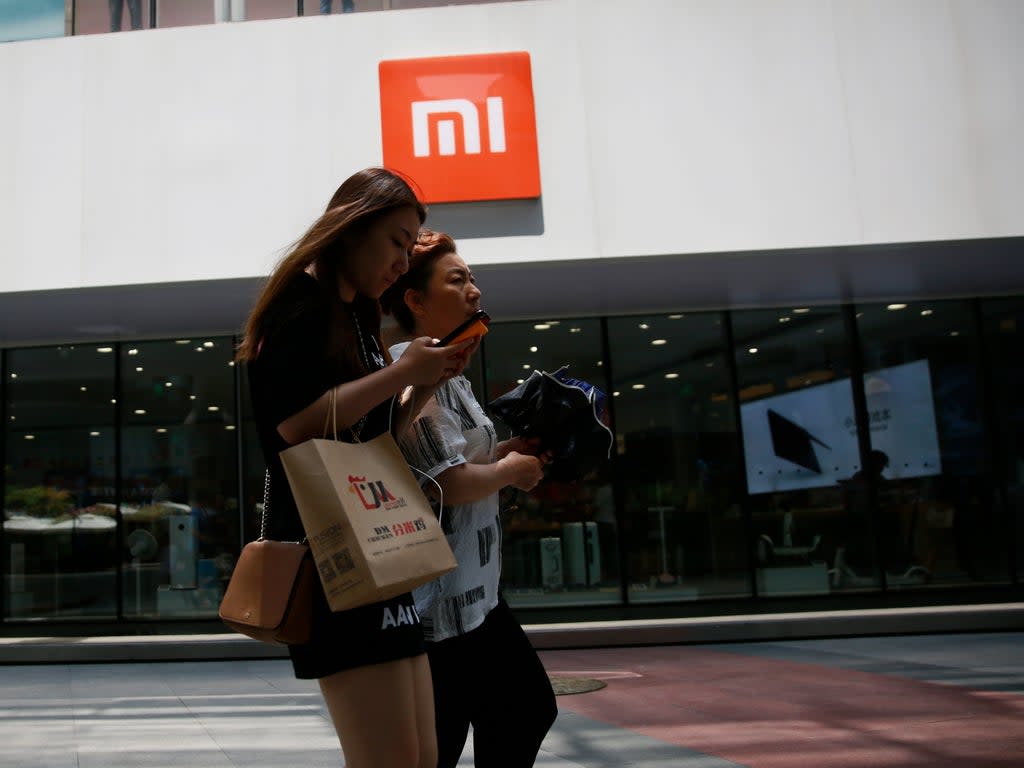Better than the West? Beijing’s democracy boast draws scorn from Chinese netizens

When China took a swipe at the US-led summit on democracy this week by touting its own democratic credentials, it would have expected scorn from abroad. What Beijing might not have envisaged was such a strong backlash from its own citizens online.
Many netizens on Weibo - the heavily censored Chinese equivalent of Twitter - criticised the government’s position paper “China: Democracy That Works”, with some users even sarcastically comparing the country to North Korea.
One netizen wrote that Chinese people should have more exchanges about “democracy” with their North Korean counterparts.
“We can improve together and fulfil the so-called ‘high-class’ democracy,” he said.
Another Weibo user said: “I think the most democratic country in the world is North Korea.”
China’s democratic propaganda blitz came ahead of a virtual “Summit for Democracy” led by US President Joe Biden, a first-of-its kind event that kicked off on Thursday and gathered more than 100 world leaders.
China and Russia were not invited, while the inclusion of Taiwan angered Beijing, which sees the democratically governed island as part of its territory.
The white paper by the Chinese Communist Party (CCP) said “there is no fixed model of democracy; it manifests itself in many forms” and argued that its own approach is superior to that of the US, UK, and other Western governments.
This stance has been widely promoted by Chinese diplomats, officials and state media this week, and fits into the country’s post-pandemic narrative that the “East is rising and the West is declining”. This catchphrase has been widely circulated since late 2019.
Yet perusing Chinese social media platforms, it appears that not everyone has got the message.

One netizen questioned the recent legislative election: “Please make sure we can have an election that everyone can participate in first.”
Another said: “Who has actually voted for the representative for the National People’s Congress?” – the country’s rubber-stamp legislative body.
A post by Hu Xijin, the chief editor of China’s state-run tabloid Global Times, detailing why China’s so-called “whole process democracy” is about letting people make alldecisions, received a fair share of the hits and generated backlash.
Unlike other social media posts that directly criticise the Chinese government’s claims, these sarcastic or posts received thousands of likes and triggered lots of fierce debate on Weibo before they were removed by censors.
However, comments lambasting the democracy in the US remain online.
There has never been a time in history, Chinese leaders believe, when the West’s liberal democracy has been as fragile as it seems today. In particular, the 6 January siege of the US Capitol by a mob of Donald Trump supporters, bolstered this belief from Beijing.
Many among the country’s top brass think it is time to challenge the US and Europe’s moral leadership on the issue of democracy.
But primarily, President Xi Jinping’s lieutenants are annoyed to see Taiwan, which Beijing considers a renegade island, at the US-led summit.
To beat the summit’s core intent, the Chinese government published the white paper to explain the “whole-process people’s democracy” – a new theory suggested by Mr Xi as a counterweight to the western democratic superiority over China’s regime.
No matter what kind of new phrases the authorities try to come up with, it is all meaningless to us
Chinese netizen on Weibo
This approach is squared on promoting the notion of economic achievements as the source of legitimacy. Any other model, the paper suggests, that is not “from the people to the people, with the people, for the people,” is doomed to fail.
The paper claims that: “In China, personal liberty has developed to an extent never before seen in several thousand years of history. Creativity and potential for innovation have been fully unleashed, and people enjoy the freedom of speech and mobility.”
Speaking in October, Mr Xi said a country’s democratic merits could only be judged by its own citizens, and said there was no place for “a small number of outsiders to point fingers”.
For much of the world, this is a tough pill to swallow.
China has been under CCP rule for over 70 years, with freedom of expression and association, free media, and fair elections forbidden.
Since Mr Xi ascended to power in 2013, crackdowns on once democratic Hong Kong have become more decisive, the detention of millions of Uighurs in Xinjiang has caused global alarm, and human rights are believed to be deteriorating across the board.
Katja Drinhausen, senior analyst at MERICS, a Berlin-based think tank that focuses on China, said Beijing’s latest propaganda push had been partially successful by “framing China’s right to its own form of democracy as a struggle against the hegemonistic West.”
Nonetheless, she told The Independent that Chinese netizens were certainly aware of the irony, judging by comments on Weibo.
One Weibo user dismissed out of hand the latest white paper and said there was no such thing as “the whole process democracy.”
“No matter what kind of new phrases the authorities try to come up with, it is all meaningless to us,” they posted.
Another user told Chinese officials, bluntly: “Mind your own business.”
Read More
China's communists bash US democracy before Biden summit
US invitation of Taiwan to democracy summit angers China
China, US tussle over Biden's 'Summit for Democracy'
Communist party members in China are obliged to have three children, suggests op-ed
Nicaragua cuts diplomatic ties with Taiwan in favour of China
‘A historic day’: Uyghurs welcome genocide ruling and call for action


